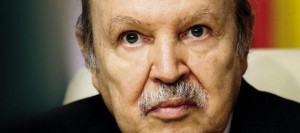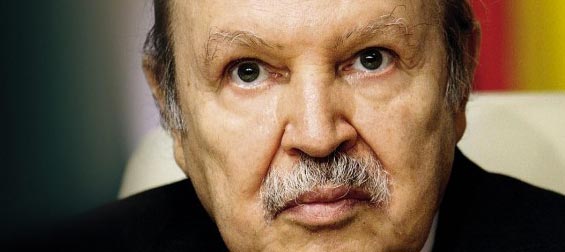 A new escalation in Algerian-Moroccan relations is making the headlines in both countries and fuelling analysts’ comments.
A new escalation in Algerian-Moroccan relations is making the headlines in both countries and fuelling analysts’ comments.
Relations between the two neighboring countries deteriorated after the Algerian President Abdelaziz Bouteflika stressed in a message he addressed earlier this week to a conference on the Western Sahara issue hosted by Nigeria “the necessity to set up a human rights monitoring mechanism in Western Sahara” and called for “the expansion of the mandate of the MINURSO (United Nations Mission for Referendum in Western Sahara) to human rights monitoring.”
Morocco’s response was not long to come. On Wednesday, Rabat recalled its ambassador to Algeria for consultation explaining the decision was made “in response to a number of hostile and provocative acts by Algeria against the Kingdom, particularly with regard to the regional dispute over the Moroccan Sahara.”
For over four decades, relations between Algiers and Rabat have often been marked by crises and tensions because of the dispute over Western Sahara, a former Spanish colony. The UN sponsored several rounds of negotiations between the involved parties in a bid to settle the long standing dispute but to no avail. In 2007, Morocco proposed an autonomy plan, which was described by several world powers and by the Security Council as “a serious and credible” basis for a settlement. Meanwhile, the separatist Polisario Front and its mentor Algeria stick to their project to set up a Sahrawi republic in the territory, despite the international community’s opposition to the creation of a failing state in a region that continues to be volatile and vulnerable to terrorism.
More to the point, Bouteflika’s provocative message is raising questions about the appropriateness of such a message at this particular timing when relations between the two neighbors seemed rather moving towards conciliation, as evidenced by the visits exchanged between the two countries’ officials. The Algerian message is deemed untimely also because it was released while Christopher Ross, the personal representative of the UN Secretary General for Western Sahara, has just initiated a new “shuttle diplomacy” to put the negotiation process back on track and has just wound up a tour in the region part of these efforts.
Algeria has deplored Morocco’s decision to recall its ambassador describing the decision as “unjustified” and announced it was maintaining all the heads and staff of its diplomatic and consular missions in Morocco.
Algeria “hopes that this unfortunate episode in the course of Algerian-Moroccan relations will be contained in its proper dimension and will be quickly overcome,” said the Algerian Ministry of Foreign Affairs.
Some pundits who follow up the Western Sahara issue explain however that the message was just another way for Algiers to express its rejection of any negotiation or compromise on the regional conflict. Others argue that the message was first meant to silence the mounting angry voices within the Polisario-controlled Tindouf camps where people and especially the youths have grown tired of the decades-long wait and see policy and who yearn for better living conditions, for more freedom and for a less depressing future. A third category of analysts explain the message by the Algerian president’s desire to divert the Algerian public opinion from its own social plagues and to distract those who may claim democratic reforms or who may publicly oppose the ailing president’s candidacy to the 2014 presidential elections.
Director of the Intelligence Project at the Brookings Institution, Bruce Riedel wrote in a recent story that the announcement that President Abdelaziz Bouteflika will run for a fourth term despite suffering a stroke this year illustrates the bankruptcy of the Algerian political process.
“The president and the generals who run Algeria, the Arab world’s largest police state, apparently decided to prolong the status quo as long as possible, fearing that any moves toward opening the political process would usher in unpredictable and dangerous demands for democracy,” underlined the expert.
However, whatever the purpose of the message, Algiers’ current approach is deemed counterproductive as it can by no means help solve the regional conflict, stabilize the region nor push forward the stalled Maghreb integration project, at a time the changes that swept over the region actually require a new vision for regional geopolitical stability, security and peace.
In this vein, the spokesman for the French foreign affairs ministry, Romain Nadal, said at a press briefing that France has always called for rapprochement between Morocco and Algeria so that efforts are channelled towards the construction of a united Maghreb. France hopes to see Maghreb countries bound by good cooperation relations so that they can address the many challenges facing the region, the spokesman said.
Algeria/Morocco: a Fortuitous Message or a deliberate diversion?
